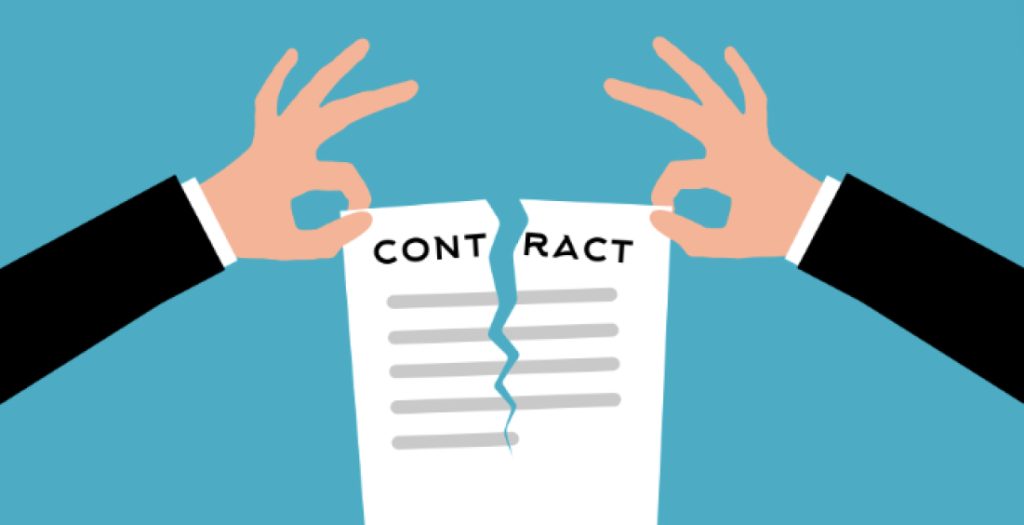COVID-19 affected many aspects of our personal and work lives. To be honest, our lives were turned upside down by the pandemic. Lockdowns introduced serious challenges for commercial tenants and their landlords, who were both under extreme pressure to stay afloat. Tenants were unable to use their premises and incurred many additional costs with employees working from their own premises. Landlords were caught between repaying their commercial mortgages and trying to pacify disgruntled tenants.
Time was against everyone because nobody knew how long the lockdowns would last and whether they would return. Many tenants and landlords entered into good faith negotiations, while others had to consider cutting their losses and break their leases. It became such a hot topic that the government had to intervene with new legislation to guide tenants and landlords in these unprecedented times.
Why change the property law legislation?
The government needed to help all businesses survive. This included looking at timeframes for dealing with commercial rent arrears and the problem of tenants being excluded from their premises by lock downs. By giving parties more time to fulfil their payment obligations before the other side could take enforcement action, the proposed changes would make it easier to hold lease arrangements and return to business as usual following the pandemic. By addressing what happens when tenants can’t access their premises, the government was attempting to fill a gap in most commercial leases.
When did these changes take effect?
The changes have been in force since 01 April 2020 – but they are temporary.
What legislation has changed?
The COVID-19 Response (Further Management Measures) Legislation Act 2020 amended the Property Law Act 2007 (which deals with leases) by restricting landlords’ rights to cancel a lease if a tenant does not pay rent, and mandating the reduction of rent where the pandemic prevents a tenant using the premises.
Key changes include:
Longer time periods for the breach and the remedy
Extending from 10 working days to 30 working days:
- the period rent must be in arrears before a notice to cancel can be issued; and
- the period the tenant has to remedy the breach.
Rent reductions
More significantly, however, a fair proportion of a tenant’s rent and outgoings cease to be payable during any period the tenant and/or their customers are unable to access the premises.
Note, however, that these terms apply only commercial leases that do not expressly address the issue, and they are not permanent. The rent reductions apply for only as long as the government extends its Epidemic Preparedness (COVID-19) Notice 2020, which must be renewed every three months. The time extensions on rent arrears apply for a further six months.
What the latest ADLS Lease says
The most common commercial lease is the “ADLS” lease. Although it now addresses the issue, may landlords and tenants will be operating under earlier versions that do not. The new ADLS clauses are broader than the Covid legislation. They cover any emergency where the Tenant is unable to gain access to the premises to fully conduct the Tenant’s business from the premises because of reasons for safety of the public or property or the need to prevent, reduce or overcome any hazard, harm or loss that may be associated with the emergency. Examples include
(a) a prohibited or restricted access cordon applying to the premises; or
(b) prohibition on the use of the premises pending the completion of structural engineering or other reports and appropriate certifications required by any competent authority that the premises are fit for use; or
(c) restriction on the occupation of the premises by any competent authority,
Firstly, a fair proportion of the rent or outgoings ceases to be payable for so long as the Tenant is unable to gain access to the premises to fully conduct the Tenant’s business.
More drastically, either party may terminate the lease by giving 10 working days’ written notice to the other if:
(a) The tenant is unable to gain access to the premises for the period specified in the schedule; or
(b) The party that terminates the lease can establish with reasonable certainty that the tenant is unable to gain access to the premises for that period.
Why are these changes important?
The fair proportion clauses, whether expressed in the lease or implied, means the tenant has a right to a rebate so the landlord cannot simply claim all rent and outgoings which are in arrears for that period. If the landlord does, the tenant may be granted relief from the cancellation and the landlord may be liable for the tenant’s costs in making the application and any damages arising from the cancellation.
Assessing what constitutes a fair proportion requires experience and expertise. So does negotiating with the other party to reach an agreed outcome and determining how to proceed if an agreement cannot be reached.
At Carlile Dowling, we’re here to help you plan and negotiate your way through this revised legislation and exit your lease if necessary, and with any other property law matters. Please visit our Property Law team here or call Michael Morgan on 06 835-9250 or email michael@cardow.co.nz.
 Skip to content
Skip to content






